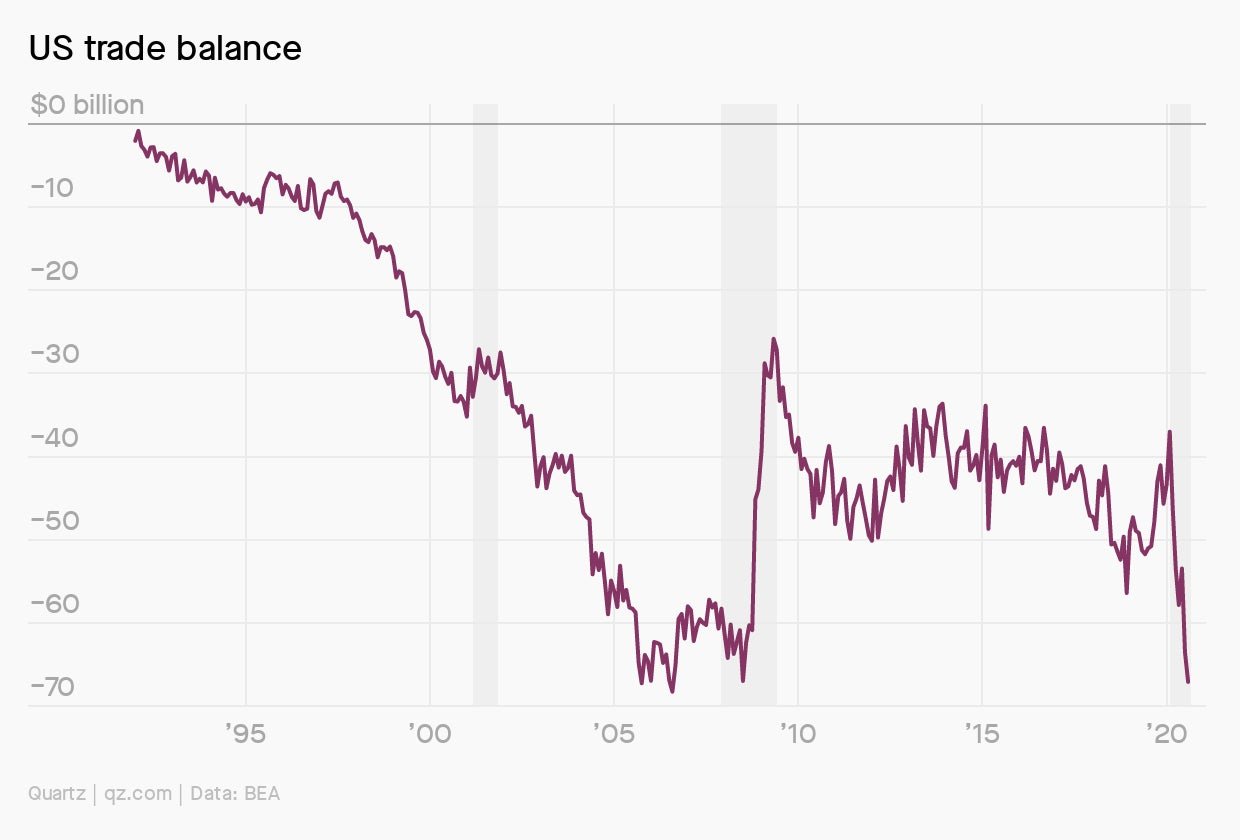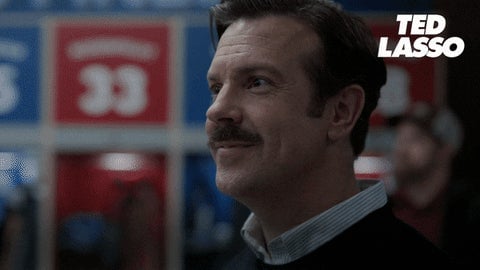Broken remote control, billionaire snitch, buttcheeks
Good morning, Quartz readers!

Good morning, Quartz readers!
Here’s what you need to know
It was a metaphor for the state of US politics. Trump and Biden appeared in dueling town halls at the same time on different networks, fielding different questions from different people in mutually exclusive forums. You had to watch one or the other, or even worse, both back to back. At the same time, in case you understandably tuned out, the Braves beat the Dodgers.
One billionaire turned on another in the biggest US tax evasion case in history. Robert Brockman, CEO of Ohio-based Reynolds and Reynolds Co, allegedly hid $2 billion from the IRS over two decades. He was indicted after another magnate, Robert Smith, turned informant to avoid prosecution.
Mass protests continue in Nigeria. Since Oct. 8, young Nigerians have been converging in several cities across the country to protest against rampant police brutality, particularly by an infamous special anti-robbery unit that has become known for extortion, illegal arrests, and in extreme cases, killing innocent civilians.
Japan reportedly plans to dump contaminated water from a nuclear disaster into the sea. Nearly a decade after a huge earthquake caused a meltdown at the Fukushima power plant, the Asahi newspaper says that authorities want to dispose of 1 million tons of irradiated water in the ocean. “We need to make a decision quickly,” said Japan’s industry minister Hiroshi Kajiyama.
Charting the US trade deficit
The US trade deficit in goods and services hit $67 billion in August, and if it continues to grow at this pace, it will be the largest it’s ever been.

The primary reason the US typically has such a large trade imbalance is that it has the world’s reserve currency. People all over the world want to hold dollars. When foreigners sell goods to people in the US, they don’t always use that money to immediately buy stuff from American companies, but rather, because the dollar is such a safe asset, they keep it. That allows Americans to consume more than they produce. Dan Kopf explains more about why a trade deficit isn’t necessarily the worst thing.
Put me in the Zoom, coach

Executive coaching is an estimated $3 billion-a-year global industry, with the median rate for a coach hovering around $500 an hour. And though revenue in the coaching field might be hurt by the pandemic, it’s still a busy time for executive coaches, as business leaders seek guidance on everything from managing layoffs to navigating racial issues at work.
To accommodate busy clients, coaches have long offered virtual sessions. But with the pandemic, the more deliberate shift to online coaching has still brought change to the industry.
“I think the pandemic has really led people to realize: I need additional support,” says Melody Wilding, an executive specializing in highly sensitive people. She is one of five coaches we checked with for our field guide on consulting’s new challenges.
✦ Let us coach you on something. A Quartz membership is a paywall-free, perk-full experience. Use the promo code QZTWENTY to unlock a 20% discount.
Obsession interlude: Rethinking Cities
Tactical urbanism: A movement using “short-term, low-cost, and scalable interventions to catalyze long-term change” to reshape cities.
Tactical urbanism is not showing up at your local food co-op in fatigues.
Tactical urbanism is pop-up bike lanes, greenbelts, or “slow streets”. These urban infrastructure modifications shift the balance of power between pedestrians and cars, and give cities real-time data to fuel bigger changes down the (literal) road.
The pandemic has forced cities all over the world to reimagine how best to serve those who live and work within them—but it’s not the first time cities have had to pivot, nor will it be the last. Taking a note from tactical urbanism movements from the past can help plan for the future.
Follow our Rethinking Cities obsession to keep up with the way urbanism is changing.
You Asked about contact tracing
Why isn’t contact tracing more effective in the US?
Good question, and a tricky one. It’s not the fault of the tracers themselves: With wait times for diagnostic test results as long as weeks, the window for identifying Covid-19 patients before they have a chance to infect others is vanishingly small.
Now, though, there is an approach that could make contact tracing more effective: rapid antigen testing. Instead of DNA, these diagnostic tests look for proteins on the outer coating of the virus. They’re not as sensitive as PCR tests, meaning they can only detect viral proteins when a person has a high viral load and is, therefore, most infectious, but because they’re cheaper—to the tune of $5 per test—individuals can get tested repeatedly over days or weeks. They require equipment the size of a credit card instead of an entire lab, and results are ready in 15 minutes.
That’s music to contact tracers’ ears. Their job is to call everyone a Covid-19 patient contacted in the 48 hours before they started showing symptoms. Immediate results could mean more accurate tracing: The longer the delay in an index case’s test results, the harder it is for them to remember their contacts. Katherine Ellen Foley goes deeper into antigen tests and the impact they could have on the pandemic.
Surprising discoveries
Flaming Lips invented a socially distanced mosh pit. For their recent concerts, audience members have been encased in giant plastic “space bubbles.”
QR codes have been waiting a long time for… all this. Before the pandemic made the technology essential, QR codes, quite honestly, sucked.
No one watches “Netflix.” Just 3% of the streaming service’s most-watched content over the last six weeks was actually produced by Netflix.
“Buttcheeks” is one word. At least that’s what our friends at Reuters decided with this headline about a Brazilian senator’s cash stash.
Quartz Daily Brief readers win stuff. Share your favorite email (as long as it’s this one) to earn premium Quartz bounty.
Our best wishes for a productive day. Please send any news, comments, quirky QR codes, and a Netflix special to [email protected]. Get the most out of Quartz by downloading our iOS app and becoming a member. Today’s Daily Brief was brought to you by Hasit Shah, Michael Coren, and Max Lockie.